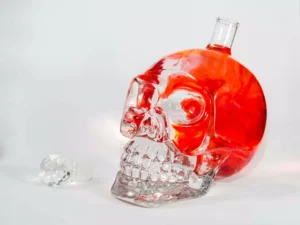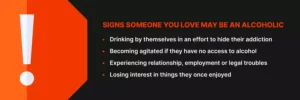
In the Church of Jesus Christ of Latter-day Saints, alcohol consumption is forbidden,52 and teetotalism has become a distinguishing feature of its members. Jehovah’s Witnesses allow moderate alcohol consumption among its members. Treatment should focus on giving patients the education, tools, and support they need to detox safely, get sober, and maintain long-term sobriety. Coma or unconsciousness is possible when a person’s BAC is between 0.35% and stages of alcohol intoxication 0.45%. At this point of intoxication, reduced respiration and circulation depression are life-threatening.
Greater Boston Addiction Centers

During this stage, consuming alcohol becomes less about social enjoyment and more about fulfilling an increasing compulsion. Physical symptoms may manifest as withdrawal effects like headaches or tremors, highlighting a growing dependency on alcohol. Mental health can also take a toll; prevalent symptoms include heightened anxiety or irritability, particularly when access to alcohol is restricted. Getting professional medical help is necessary in situations of extreme alcohol intoxication. That’s because paramedics, physicians, and other medical staff can administer certain treatments to help mitigate the marijuana addiction effects of intoxication.
Understand the Risks of Alcohol Abuse

This decision, coupled with a decrease in motor function, coordination, and reaction time, leads to many car crashes. Around 30 people per day die from drunk-driving accidents in the United States. Deficiencies in motor function and coordination become more pronounced in this stage. People may start behaving with less restraint, and judgment may now be askew. Some people also get drowsy, have trouble seeing well, or even experience some minor memory lapses. As people drink more, they begin to have more pronounced impairment in their balance, coordination, speech, and attention.
- At this stage of intoxication, the person’s behavior will be normal with no visible signs of intoxication, such as slurred speech or delayed reaction time.
- In addition, your reaction time and motor skills will decrease.
- Mild intoxication is mostly referred to by slang terms such as tipsy or buzzed.
- Intoxication can also lead to choking due to vomit, extreme dehydration, circulatory issues, seizures, and even brain damage.
- That’s why driving with a BAC of 0.08 percent or higher is illegal.
- If you find yourself stuck in a pattern of binge drinking or recreational drug abuse, the earlier you seek effective treatment for recovery, the better.
How can I prevent relapse after completing treatment?
- Aside from all the previously mentioned symptoms, becoming intoxicated puts you at risk for multiple types of dangerous situations.
- Your memory and awareness of your surroundings will also plummet, sometimes to the point of a blackout.
- It may seem like a person has to drink a lot to get to this stage.
- Alcohol addiction is one of the most common forms of addiction many adults experience.
Unless their tolerance level is extremely high, someone at this stage will lose all motor control and the ability to react to stimuli. If you have one standard drink, your BAC will probably not surpass 0.05%. You will probably not show signs of intoxication by observation alone. This can lead to a downward cycle of adverse health, financial, social, and legal issues.

Alcoholic Dementia vs. Wernicke-Korsakoff Syndrome
- Using alcohol during adolescence (from preteens to mid-20s) may affect brain development, making it more likely that they will be diagnosed with AUD later in life.
- At Greater Boston Addiction Centers, we provide evidence-based addiction treatment tailored to each individual’s needs.
- No two people who drink alcohol experience the exact same effects.
- If you think someone is experiencing alcohol poisoning, seek emergency medical attention immediately.
- Blacking out means forgetting what happened while you were drunk.
Alcohol addiction is https://ecosoberhouse.com/ problem often recognized far too late, however, once its symptoms are recognized it is important to seek treatment from an alcohol rehabilitation center as soon as possible. Kelly is a board certified Psychiatric-Mental Health Nurse Practitioner who earned her Master of Science degree in Nursing with a concentration in mental health at Fairleigh Dickinson University. Kelly has fourteen years nursing experience as a Registered Nurse, Nurse Manager, and Advanced Practice Nurse in both psychiatric and substance use disorder settings. She has worked in inpatient settings as well as provided community nursing as a Nurse Practitioner.
- In addition to respiratory failure and accidents caused by its effects on the central nervous system, alcohol causes significant metabolic derangements.
- Over time, excessive drinking can lead to mental health problems, such as depression and anxiety.
- Typically, subjective complaints precede physical findings in the eye.
- At this stage, a person’s BAC will range from 0.25 to 0.4 percent.
- We never ask for personal or private information like names, email addresses, or credit card numbers.
An important feature of the Dubowski alcohol table was the overlapping ranges of BAC for each of the stages of alcohol influence. This was done to reflect variations in the physiological effects of ethanol on the nervous system between different individuals. Information gleaned from the Dubowski table is not intended to apply to any specific individual but more generally for a population of social drinkers, not regular heavy drinkers or alcoholics. Under real-world conditions, much will depend on a person’s age, race, gender, pattern of drinking, habituation to alcohol and the development of central nervous tolerance.
